- PreSeed Now
- Posts
- 10 startups that excited you most over the past 12 months
10 startups that excited you most over the past 12 months
Who's on the list this time...?
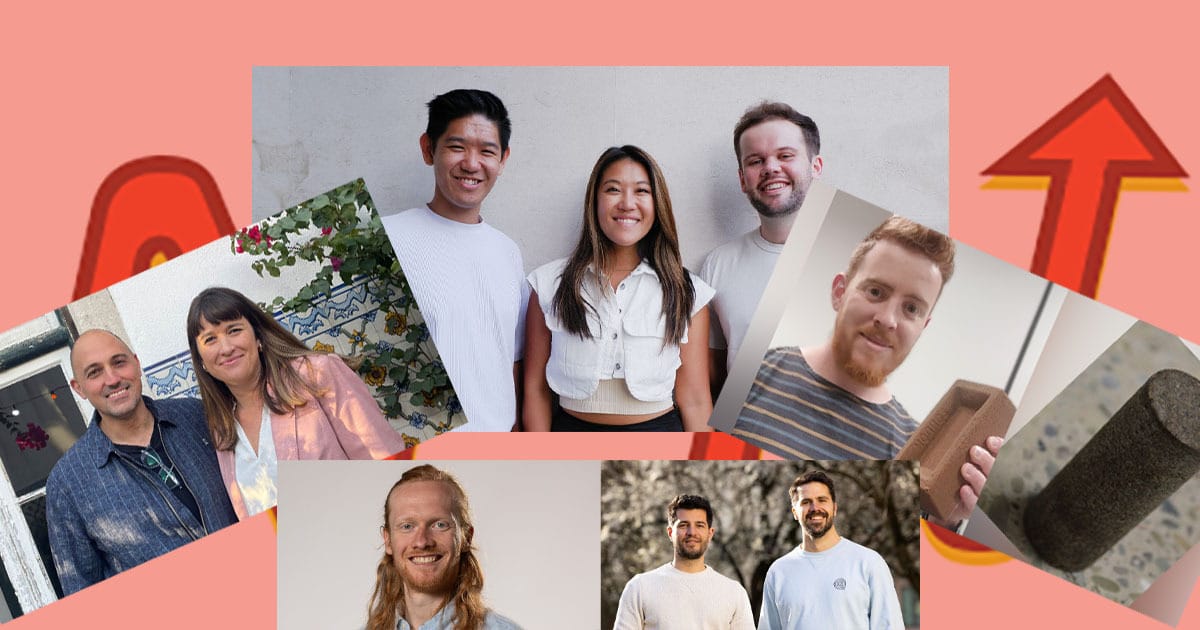

It’s that time again! Today, as we do four times per year, we’ve checked the metrics and figured out the 10 most read and shared startup profiles on PreSeed Now from the past 12 months.
This time, it’s a combination of some that have been on the list before, and some new entries. But I won’t spoil it… Read on to find out who they are.
– Martin
AI founders: Got a game-changing startup?
Building the future of AI? Here's your shot at $50K to make it happen.
The Next Big AIdea pitch competition is live. If you've got an AI startup that's changing how businesses grow, we want to see it.
Record a 60-second pitch and you could win $50,000 cash, $25K in AWS credits, 600K Clay credits + Pro Plan, and exposure to millions through HubSpot Media's network.
Five finalists get flown to San Francisco to pitch live at INBOUND 2025 in front of 1,000+ industry leaders.
Your AI idea deserves more than just another LinkedIn post.
The 10 startups getting you most excited over the past 12 months
…based on reads and shares on PreSeed Now:
Veraty
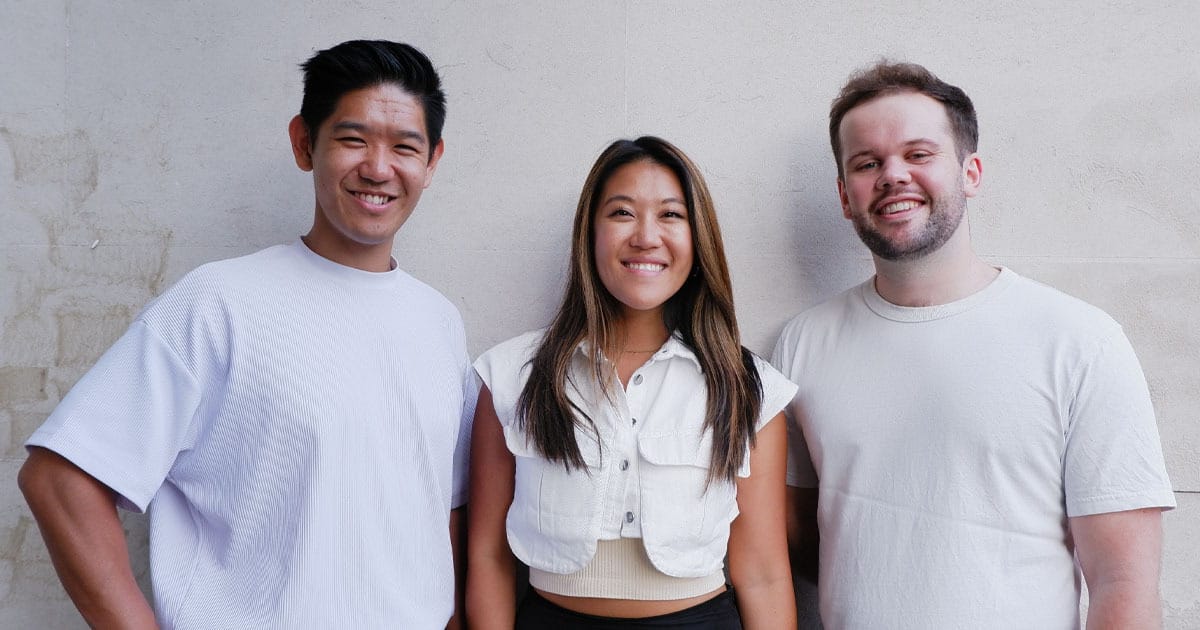
Veraty co-founders Jeremy Chan, Vivienne Chan, Ryan Turnbull
“Two of the biggest blockers to startup and scale-up growth that we found is often the law; legal regulation, but also customer legals, legal teams and requirements, and then also data protection or cyber security,” says Veraty co-founder Jeremy Chan.
“So what we’ve tried to do is build in one platform, a legal AI that can handle all of those queries that startups and scale-ups might face, and unblock teams to help them grow quickly.”
In practice, this means a single AI interface to handle all the legal hurdles a startup might face. This includes everything from basic legal documents, to regulatory challenges, customer complaints, and closing B2B deals.
Eventually, the Veraty team wants to replace lawyers entirely for these tasks, but they’re being careful about how they build the product and even provide customers access to human lawyers where needed.
Location: London
PeriPear
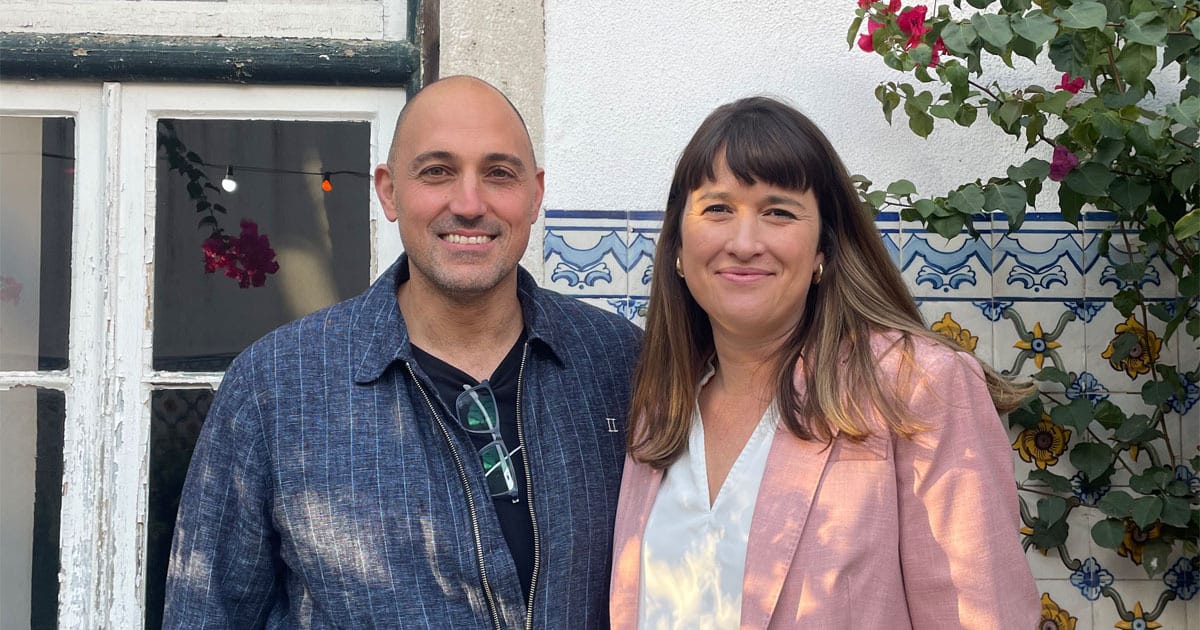
PeriPear cofounders Eviatar Natan and Nina van Schaick
This startup is solving a serious problem very much deserving of attention, in the field of women’s health - a notoriously under-funded area. So, it was good to see PeriPear get such a good response from PreSeed Now readers.
Perineal tear injuries occur in as many as 90% of vaginal births, and nearly half of these injuries will require surgical repair.
Midwife Nina van Schaick was frustrated with the lack of innovation in reducing these problems, which can result in expensive surgery and longer hospital stays for new parents, and complicate what should be a happy occasion.
Currently, a warm compress is best practice for reducing risk of tears, but van Schaick says that in many cases, even that doesn’t happen. So PeriPear is developing a device designed to be used during childbirth that could significantly reduce the problem of perineal tear injuries.
Location: Oxford
PreSeed Now profiles super-early-stage B2B and deep tech startups you need to know about.
Get it in your inbox for free:
Ureaka
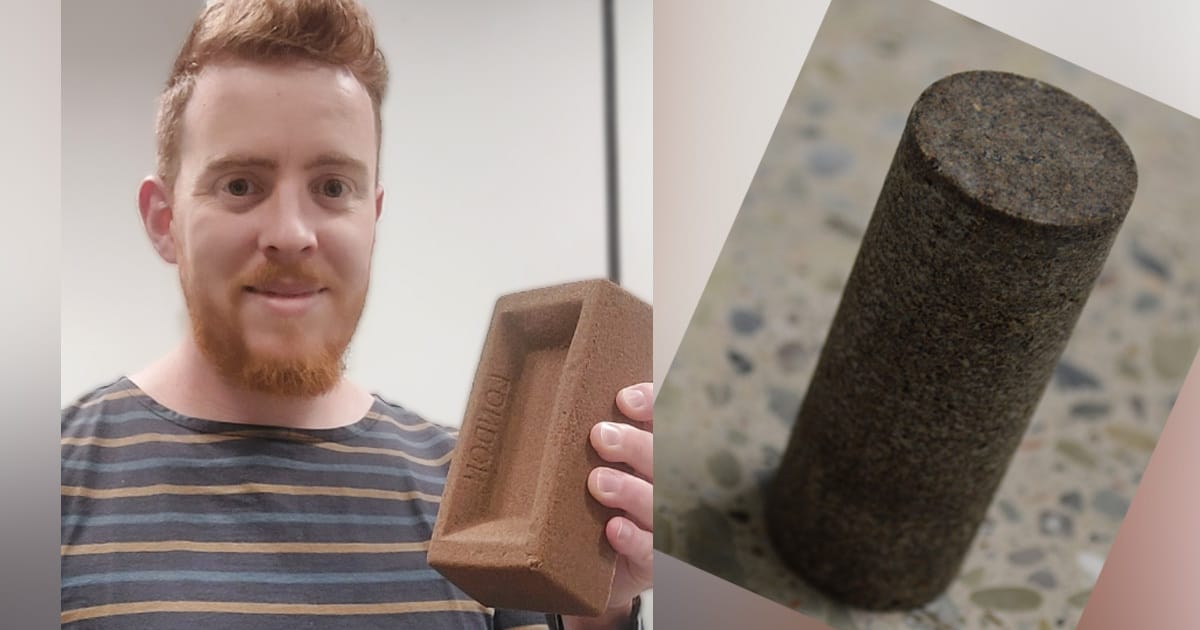
Ureaka founder Philip Salter with some of his concrete creations
Concrete is one of the (literal) building blocks of the modern world, and yet it comes with environmental impacts that can be difficult to avoid.
But what if at least some of the negative impact could be removed by creating concrete in a new way? That’s what Scottish startup Ureaka is working on with its simple-sounding pitch: “We turn CO2 into concrete.”
“Ureaka makes carbon-negative bio-concrete,” explains founder Philip Salter. CO2 is stored inside the concrete as part of the production process.
“We remove the inherently high carbon footprint of concrete, and we're also storing carbon in it.”
Location: Glasgow
Nafura
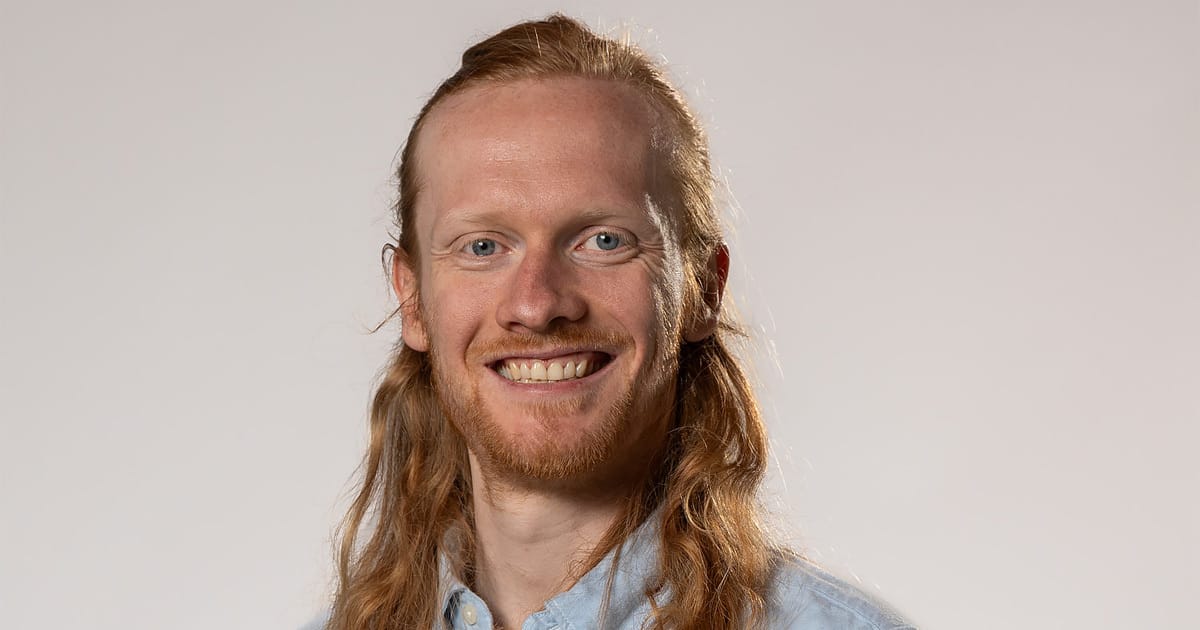
Nafura co-founder Harry Brooksbank
“We're living in 2025 and we've got advanced quantum computing and we can land a rocket on a floating barge, but when you look at what we're doing in terms of wastewater, it’s so archaic,” argues Harry Brooksbank, co-founder of Nafura, a brand new startup taking a fresh approach to dirty water.
Nafura’s approach harnesses a process called plasma gasification, which is already used to treat other forms of waste.
The idea is that wastewater is pumped through Nafura’s device, where it is blasted by a plasma torch in a thermal plasma gasification process.
“We can destroy any contaminant. It doesn't matter if it's biological, chemical, or even physical microbes - solvents, nasty pesticides, or even microplastics. We can destroy them all in situ,” Brooksbank explains.
Location: HQ planned for Derby
Qlarifi

Qlarifi co-founders Loïc Berthou and Alex Naughton
Traditional credit bureaus aren’t well equipped to keep track of fast-paced, small-value loans in the buy-now-pay-later (BNPL) space. This can be a problem to lenders and borrowers alike.
Enter Qlarifi, which describes itself as “the world's first buy-now-pay-later specific credit bureau.”
Qlarifi takes data from BNPL loan providers, with the aim of helping lenders of all kinds make more informed underwriting decisions. Meanwhile, regulators and the BNPL industry can get a more detailed understanding of what kinds of additional consumer protections they might need to put in place.
Location: London
Paloma Health

Paloma Health co-founders Mark Jenkins and Darshak Shah
It’s no secret that the NHS has been struggling for years to balance demand for its services with incredibly tight budgets.
Typically, the solutions proposed are ‘give the NHS more money’, ‘cut services’, or ‘increase efficiency’. But what if it’s more effective to entirely rethink how services are delivered from the ground up?
That’s the goal of Paloma Health, a London-based startup that believes “process innovation” is the key to improving outcomes for patients.
“Almost every single industry that you've seen innovation in in the last 10 to 15 years has seen process innovation. Businesses like Monzo or Treatwell don't do anything new. They just do what currently happens, much, much better, and that hasn't happened in healthcare,” says co-founder Mark Jenkins.
Location: London
Enginuity

Enginuity founder Richard Heggie
A stat commonly thrown around says that up to 95% of filed patents are never put to any use.
Enginuity wants to do something about that with its mission to “make the world’s IP searchable and actionable for innovators”.
You could just go to Google Patents to search up all of the patents featuring certain keywords you’re interested in, but the results are rudimentary and better suited to finding a patent you already know about than exploring innovations.
What Enginuity wants to do is help R&D departments, entrepreneurs, universities, and investors better understand what already exists in fields they work within, and help them build upon it.
Location: Distributed (founder based near Southampton)
Rightbrain

Rightbrain’s Peter Cheyne and Matt Wells
Rightbrain pitches itself as being focused on helping users “Ship AI features faster. From prompt to production.”
What does this look like in practice? Co-founder Peter Cheyne explains: “We allow people to build production-ready generative AI features in natural language. We take care of the actual generation of the APIs themselves, we do the hosting, we do the security.
“We’re about getting LLMs to perform in a manner that is consistent, easy to integrate, easy to host, and implementing that in such a way that a team who's never actually worked with this before feels comfortable that they are using it in the right way, they are hosting it in the right way, the data's been handled the right way.
“That's daunting for a lot of businesses. And the problem tends to be that often the people who understand the business problem aren't the ones who deliver the final solution. So you end up with a disconnect between the potential application of generative AI and the actual real world deployment of it. And that's where we come in.”
Location: Newcastle-upon-Tyne
TheNextLevel

While online retailers have plenty of ways to create their own apps, TheNextLevel’s product is designed to make it easy to build not just a shopping app, but online communities around its customers’ retail brands.
The startup’s tech converts Shopify stores into native mobile apps that combine shopping with social features.
“It’s about giving the brand the tools to create an engaged audience through the application, which then ultimately leads to the brand selling more stuff, by increasing the lifetime value of that customer,” founder Paul Rawlings explains.
TheNextLevel’s tech can support a range of ecommerce platforms, but they’re starting by targeting direct-to-consumer brands that use Shopify; particularly those seeking sustainable growth.
Location: Manchester
Myoform

Myoform co-founders Sacha Attiach and Theo Wiley
The precision nutrition market in North America alone has been pegged at around $6 billion, with a prediction that it could reach $12.89 billion by 2029.
Myoform is a new startup entering this space with a focus personalised supplements for athletes of both the professional and serious non-pro kind.
As co-founder and CEO Theo Wiley puts it, Myoform wants to take the principles of precision medicine and apply them to consumable health products.
A Myoform customer begins with a genetic test. They spit in a tube and send it back to the startup, which orders a whole-genome sequencing from the sample. The customer also fills in a questionnaire about their personal details and objectives.
Once the sequencing is done (this currently takes up to six weeks, depending on how busy the labs are, Wiley says), an algorithm Myoform has developed figures out what specific nutritional support the customer might need, based on their genetic profile and their questionnaire responses.
Location: London

